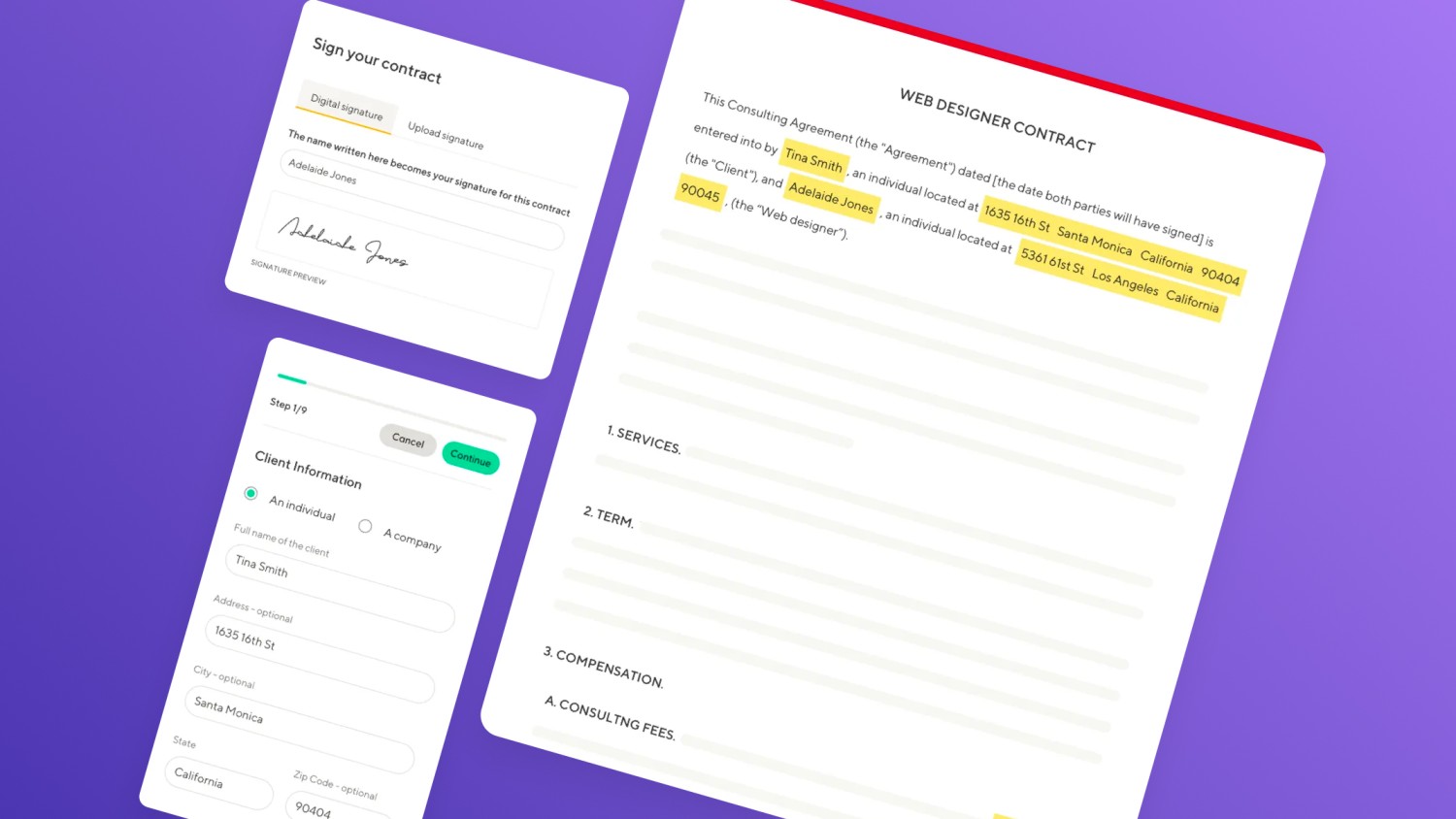
Freelance Web Developers' Guide to Legal Contracts and Agreements
As a freelance web developer, you are a digital artisan, crafting websites that are not just aesthetically pleasing but also functional. However, in the world of freelance web development, creativity is not the only skill you need. Understanding legal contracts and agreements is equally crucial. In this guide, we will unravel the intricacies of legal contracts and agreements tailored specifically for freelance web developers.
The Foundation: Legal Contracts and Agreements
Understanding the Basics
Before delving into the specifics, let's start with the fundamentals. What exactly is a legal contract, and how does it differ from an agreement?
A contract is a legally binding agreement between two or more parties. It outlines the rights and obligations of each party and serves as a safeguard against disputes.
An agreement, on the other hand, is a broader term that encompasses any mutual understanding between parties, whether legally binding or not.
The Importance of Written Contracts
In the freelance web development world, verbal agreements can lead to misunderstandings and conflicts. This is where written contracts come into play.
A well-drafted contract not only clarifies the project's scope, timelines, and payment terms but also addresses potential issues like intellectual property rights and dispute resolution.
Key Elements of a Freelance Web Development Contract
When drafting a contract as a freelance web developer, certain key elements should not be overlooked:
Scope of Work : Clearly define what you will deliver, including specific features, functionality, and project milestones.
Payment Terms : Outline the payment structure, including upfront fees, milestones, and final payments.
Intellectual Property Rights : Specify who owns the rights to the project's code, design, and content.
Confidentiality : Include clauses to protect sensitive information about the project and your clients.
Termination Clause : Address conditions under which the contract can be terminated by either party.
Dispute Resolution : Lay out the process for resolving disputes, which could include mediation or arbitration.
Crafting a Freelance Web Development Agreement
While contracts are legally binding, agreements can also play a pivotal role in your freelance journey:
Project Proposal : Use a project proposal as an initial agreement to outline the project's scope and pricing.
Change Orders : When the project scope changes, use change orders to document these alterations and adjust the agreement accordingly.
Legal Resources for Freelance Web Developers
To navigate the legal landscape effectively, freelance web developers should be aware of useful resources:
Legal Templates and Services : Explore online platforms that offer customizable contract templates designed for freelancers.
Legal Counsel : Consider consulting with an attorney experienced in freelance web development contracts for personalized advice.
Conclusion
In the world of freelance web development, a strong grasp of legal contracts and agreements is paramount. These documents serve as the backbone of your professional relationships and protect both you and your clients.
As you embark on your freelance journey, remember that clarity and transparency in your contracts and agreements can lead to smoother projects and more satisfied clients.
Frequently Asked Questions
What should I include in a project proposal?
- A project proposal should outline the project's objectives, scope, deliverables, timeline, and pricing.
How do I protect my intellectual property as a freelance web developer?
- To protect your intellectual property, clearly define ownership rights in your contracts, and consider trademarking or copyrighting your work.
What happens if a client wants to make changes to the project mid-way?
- In such cases, use a change order to document the requested changes, adjust the project scope and pricing, and have both parties agree to the alterations.
What legal risks should freelance web developers be aware of?
- Freelancers should be aware of potential risks related to payment disputes, scope creep, intellectual property disputes, and confidentiality breaches.
How can I enforce a contract if a client breaches it?
- If a client breaches a contract, follow the dispute resolution process outlined in the contract, which may involve mediation, arbitration, or legal action.
Do I need a lawyer to draft my freelance web development contracts?
- While it's not mandatory, consulting with a lawyer who specializes in freelance contracts can provide valuable insights and ensure your contracts are legally sound.
Summary
In the realm of freelance web development, legal contracts and agreements are the unsung heroes that ensure smooth collaborations and protect your interests. From defining project scopes to safeguarding intellectual property, understanding these legal documents is essential. So, as you embark on your freelance journey, equip yourself with the knowledge and tools needed to craft solid contracts and agreements. Your clients—and your business—will thank you.
For More Articles you can go through these links:-
Managing Client Expectations in Freelance Web Development
Freelance Web Design The Future of Augmented Reality (AR)
Freelance Web Development The Role of Web Hosting
